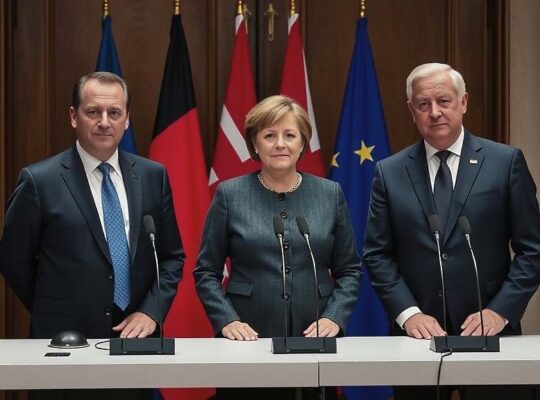A newly released study by the German Institute for Economic Research (IW) has revealed a significant shift in Germany’s social spending compared to its Nordic counterparts, Denmark, Sweden, Norway, Finland and Iceland. The findings, reported by the Rheinische Post, place Germany at the forefront of social security expenditures within the group, exceeding the combined average of the traditionally strong welfare states.
In 2023, a striking 41 percent of Germany’s total state spending was allocated to pensions, healthcare, long-term care, unemployment insurance and social benefits, including programs like the Bürgergeld. This figure surpasses the aggregate of the Nordic nations at 40 percent and also exceeds the EU average of 39 percent, as well as the Benelux countries’ expenditure at 38 percent.
The timing of the IW’s report is strategically significant, arriving just as Germany enters a crucial period of budget negotiations within the Bundestag. Federal Finance Minister Lars Klingbeil (SPD) is scheduled to defend the proposed 2026 federal budget next Tuesday, a document projecting a substantial 98 billion euros in new debt within the core budget, further compounded by additional borrowing for infrastructure and defense initiatives, culminating in a total debt burden of 180 billion euros. The study implicitly highlights the potential for budgetary strain as the government grapples with increasing social commitments.
While Germany’s expenditure on social programs as a percentage of gross domestic product lags slightly behind that of the Nordic nations (both at 20 percent), it still surpasses the EU average (19 percent) and the Benelux countries (18 percent). The report pinpoints a marked increase in Germany’s overall state quota – the proportion of state spending relative to economic output – since the COVID-19 crisis, raising concerns about long-term fiscal sustainability.
The IW’s study underscores a potentially concerning imbalance. While Germany allocates a significant portion of its resources to social security, the relatively low investment in education (9.3 percent, significantly less than Austria and Switzerland) and public investment (5.9 percent, placing Germany last compared to its peers) raises questions about the nation’s long-term competitiveness and future growth prospects. The proposed infrastructure special fund is expected to mitigate the shortfall in public investment. Furthermore, the study flagged a worrying trend of escalating administrative costs, standing at 11 percent of total spending – a top-tier international ranking – suggesting inefficiencies within the German bureaucracy that demand immediate scrutiny. This raises a critical debate around the effectiveness of government spending and the necessity for targeted reforms to optimize resource allocation and prioritize sustainable growth.












